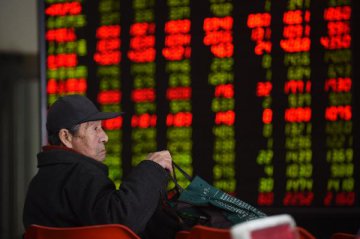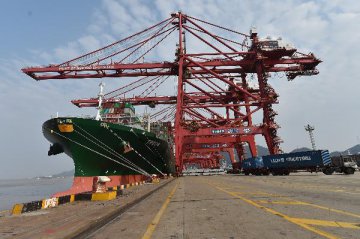
Charles Li Xiaojia, Chief Executive of Hong Kong Exchanges & Clearing Ltd. (HKEx), disclosed after attending the 2017 Annual General Meeting of HKEx on April 26 that the scheme for the new board is undergoing final wording polishing and will be discussed on the Board of Directors soon. The scheme will be submitted to regulators for opinions later and great efforts will be made to initiate market consultation in Q2 2017.
As to consultation about the reform of listing structure concerned by the market, Zhou Songgang, president of the HKEx, claimed that 8,500 pieces of market feedbacks have been received now. The HKEx will study on them carefully and strive to work out a scheme acceptable to most people. But now no new details can be disclosed.
The government of Saudi Arabia announced in 2016 that it planned to sell 5 percent equities of Saudi Aramco, the country's national petroleum and natural gas company, and get the company listed through initial public offering (IPO). The market value of the company might hit 2 trillion US dollars. Such jumbo fundraising plan touches off fierce competition among major exchanges around the world.
As to this, Zhou claimed that since the financing size of Saudi Aramco will be huge, the HKEx will make every effort as other exchanges do to persuade the company to get listed in Hong Kong. But there is no special news to release now.
The proposal of “establishing a new board” was first mentioned in the three-year strategic planning of HKEx released in early 2016. Charles Li Xiaojia once explained that on the new board, regulators can consider implementing brand-new listing rules. On the one hand, relatively easing access threshold can be set and do not keep potential companies out; on the other hand, investor protection measures and delisting standards should be strengthened, and the process for compulsive delisting of companies with poor performance should be quickened.
Charles Li Xiaojia indicated that certain threshold for investor eligibility can be set on the new board at early stage if the market is worried that such new board is too risky for investors. Professional investors with stronger risk tolerance can be allowed to enter first voluntarily. New atmosphere of the new board will show its demonstration effect after the investment culture of “survival of the fittest” in the stock market is deeply rooted among people, and the new board will then drive market reform.
Translated by Jennifer Lu





















Latest comments